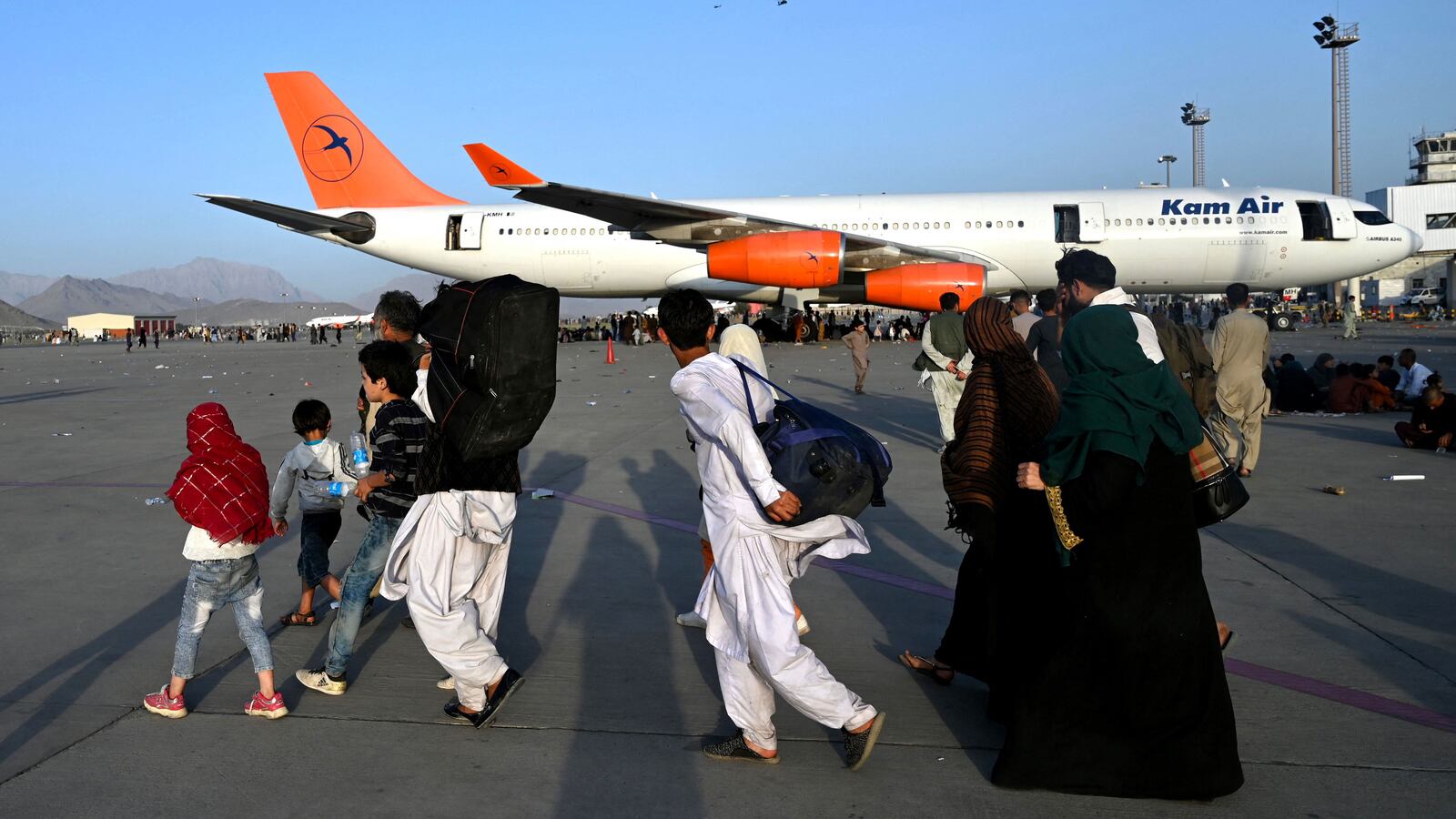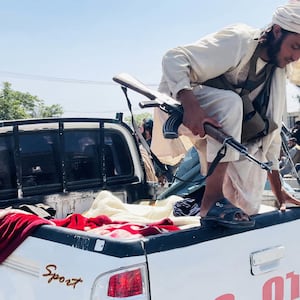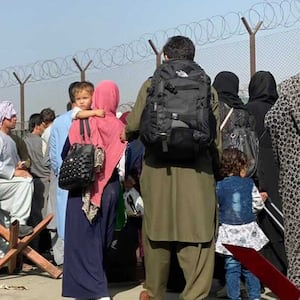The last week has been a waking nightmare in Afghanistan since the terror-driven Taliban regime took control of the country.
During that time, a flood of reports from female Afghan journalists began to emerge, in which they detailed their experiences watching their freedom disappear overnight and relinquished to Taliban militants and newly imposed Sharia law.
Over the past 48 hours, media organizations and journalists around the world, myself included, have essentially traded in their roles to act as international assistants of sorts, trying to help Afghan journalists escape the country.
My own efforts have been focused on helping a 20-year-old female Afghan reporter, who is on the Taliban “kill list,” escape as the looming August 31 deadline approaches. While she waits in a safe house in Kabul, a 30-minute walk to the airport, I have contacted every lead possible to get her on a flight out.
“I heard that today is the last chance to leave… This savage group will do anything to harass us and delay our departure,” the hopeful young journalist said on Thursday. “I know if we can leave that all our worries will end. Although it is difficult, we will endure and wait for what will happen. Inshallah.”
U.S. Army Major Matt Zeller, a former CIA analyst and Afghanistan war veteran who founded No One Left Behind, is actively helping to facilitate evacuations. I was able to reach Matt through a military contact of mine, and he has proven instrumental in working with a network of military veterans to get the most vulnerable Afghans out.
Zeller told me that he is driven by his time spent in Afghanistan and by the connection he feels with the allies who may now be left behind. “Two types of people come back from Afghanistan: The first found the experience just another leg in the ride that is life. The second leave a part of their soul behind and return with a piece of Afghanistan, its people, and its culture in their blood. I am profoundly of the latter,” he said. “For 20 years, our Afghan wartime allies stood shoulder to shoulder with us. In one year, they suffered more casualties than we did in 20.”
He continued: “Today, our Afghan brothers and sisters awake to a nightmare. Overnight their rights, hopes, dreams, and future—they are all gone, potentially never to return. They have awoken to a country run by thugs who have banned women from public life, condemned the arts as sinful, and plan to return the nation's soccer stadiums to sights of mass public executions. We would never accept America falling to Gilead. It pains me beyond description to see Afghanistan suffer the same.”
Despite our best efforts, our goal to get this one young journalist out of her crumbling city has thus far proven unsuccessful. And now, on Thursday morning, there has been a confirmed suicide bombing at Kabul’s airport with multiple casualties. The gates have been closed and people stuck there are without basic human necessities like food and water. They are reportedly being attacked by the Taliban and facing potential death at every turn.
My phone rings.
Another military source assisting with the evacuation effort informs me, “The airport is done. It’s over. They cannot go to Kabul. They need to get out now. They need to head north or east immediately. If they are on a kill list, it’s only a matter of time before they are found. Call your friend now. Tell her to pack a bag, and to bring food and water. Tell her to head to Pakistan or Uzbekistan. We will work on figuring out what to do next. This is grassroots. Call you later.”
The phone clicks. I frantically send a voice memo to the young journalist giving her the exact instructions. She calmly supplies me with each member of her family's documents, which I forward to the team. “But the roads are closed and my mother and I don’t have passports. I’m worried that I may not get out and we will be imprisoned here,” she told me.
I alerted my military contact, who advised that the journalist and her family stay the course anyhow and still head north. Staying in Kabul may mean certain death, but this terror-inducing message I do not share with her.
She was born in 2001. The year the 9/11 attacks occurred. The year the United States went to war and eventually occupied Afghanistan. For the last 20 years, she has only known life as a woman who had the right to go to school, to wear the clothing of her choice, and to have a career if she chose to. She was encouraged to be ambitious and dream. She does not know a life under Taliban rule. Overnight she has gone from a young woman aspiring to make her mark on the world to yet another Afghan refugee.
The young journalist, who studied international relations, had never seen a Taliban fighter in person until last week when she spotted them on the streets of her neighborhood. Frantically, she ran home with her chest pounding.
Her older sister, who is also a journalist, recounted the day the Taliban took over. “When I saw my little sister, I kissed her and said, ‘Don’t worry.’ There were gunshots. I took her hand and we moved towards the house. She was wrapped in fear and we were walking in our normal clothes. We could tell from their looks how much [the Taliban] hated us and the other girls out of our house. They had guns with them. This is the first time my sister saw the Taliban.”
The elder sister was able to evacuate on Wednesday, but she asked that I take care of her sibling as if she was my sister. “My sister will be lost without help,” she pleaded. “She has never been alone.”
And so from nearly 7,000 miles apart we support each other, communicating continually on the phone. Neither of us sleeps to make sure we do not miss any updates from the team of people assisting us. From the other side of the world, I hope to keep my promise to her sister that I will be there until she is safely out of Kabul.
My phone is ringing. It’s the team again. We need a miracle.







